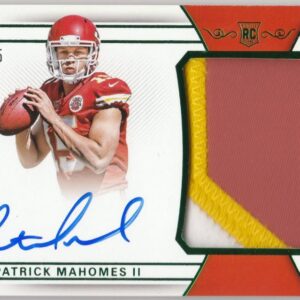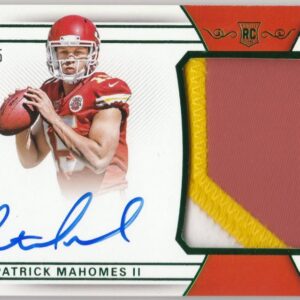Honesty and transparency are undoubtedly pillars of any solid business model. For Fanatics, a leading sports merchandise provider, they’re not just platitudes but the focus of recent actions. In an industry-leading move, Fanatics has solicited the globally revered audit firm, KPMG, to conduct an independent investigation into the fairness of its distribution of Topps card. The aim? To address some rather heated debates within the collector and dealer communities regarding the randomness of high-value card distributions.
At the recent Industry Conference in Atlanta, Fanatics Collectibles CEO Mike Mahan shared KPMG’s seal of approval. After comprehensive scrutiny, the independent audit firm confirmed that no favoritism was evident in Fanatics/Topps’ distribution processes. KPMG verified that high-value sports cards do not intentionally land in the hands of select customers, as some had suspected.
The whispers and suppositions of unfairness or partiality in dealing with high-value cards have been a smoky cloud over the collector community. Social media incited further speculation with videos of ‘breakers’ regularly pulling out valuable cards. However, Fanatics Collectibles’ CFO, Greg Abovsky, dispelled such notions, interpreting these seemingly unlikely occurrences as the mere outcome of the high volume they manage rather than any unscrupulous manipulation.
The independent and comprehensive audit led by KPMG involved more than just flicking through production logs. The firm delved deep, examining the balloting process at the Texas printing facility where the much-debated Topps cards are produced. Fanatics’ intent with this audit, unique within the industry, is to dispel any myths and confirm the reliability of their distribution processes to the steadfast collector community.
Going beyond the audit findings, Abovsky further tackled other brewing suspicions in the collector community. Contrary to popular belief, Fanatics has never populated boxes with special cards for promotional purposes. Fanatics’ commitment to bring transparency into the limelight doesn’t stop here. With plans to make such audits an annual affair, the firm is signaling its unwavering dedication to demonstrating fair play in its business practices.
The quote, ‘Transparency is the new objectivity,’ seems to fit perfectly in Fanatics’ playbook. By swinging open the doors to independent scrutiny, the firm reminds us of the importance of public trust in business—especially in industries where collector’s items shift hands. It also reiterates the significance of authentic audits from respected organizations like KPMG that can put to rest rumors and bolster confidence among stakeholder communities. Fanatics’ bold step today might spark a new trend of transparency within the industry, one Topps card at a time.





